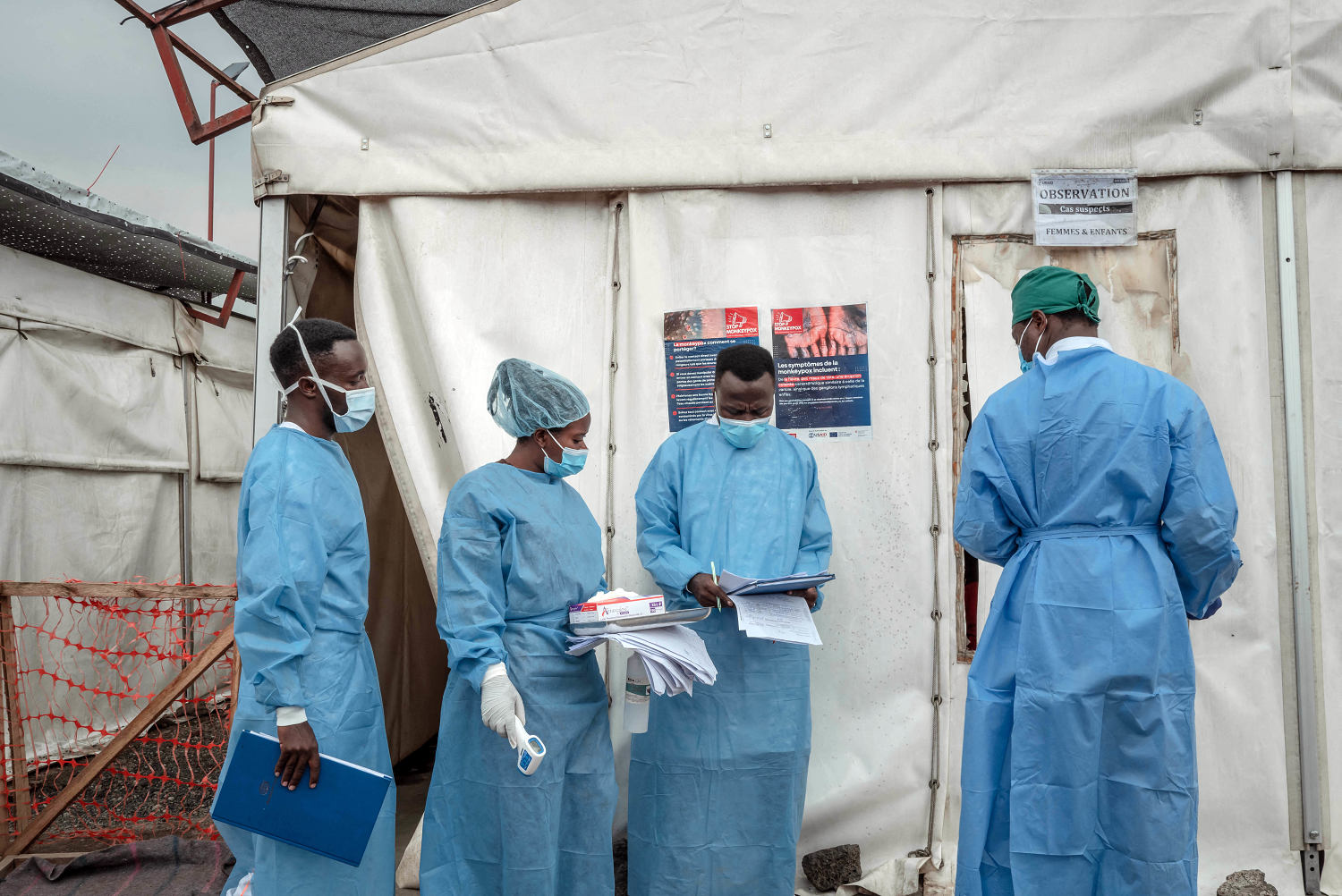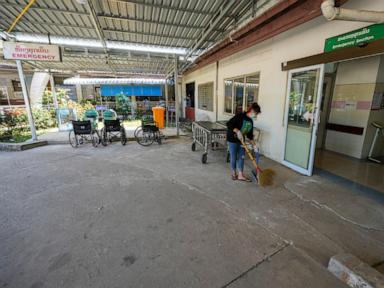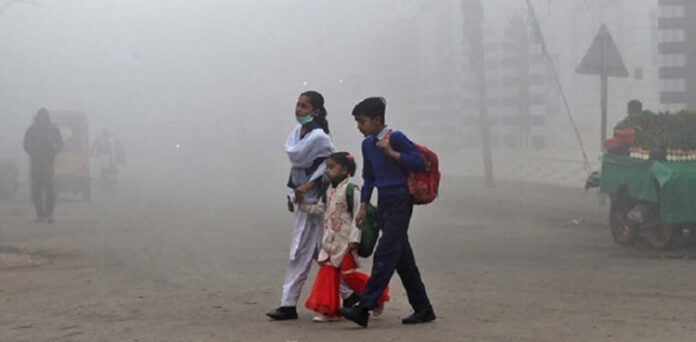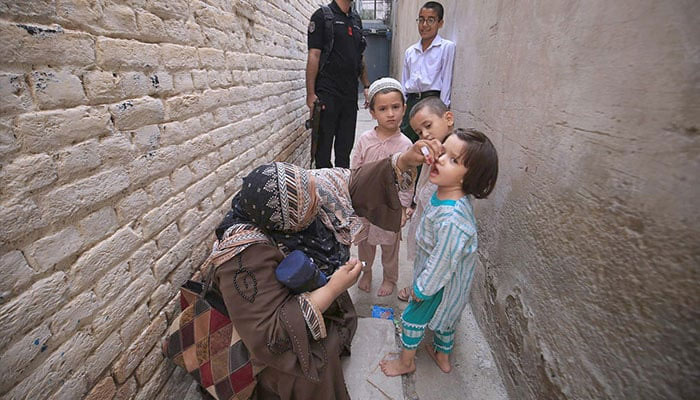
In August, the World Health Organization declared mpox a global health emergency amid a rapidly growing outbreak in central Africa and the emergence of a new, more severe subtype of the virus. On Nov. 16, the United States reported its first-ever case of this more aggressive mpox strain, called clade Ib.
The imported clade Ib case was detected in California, in a person who had recently traveled to eastern Africa, the It's one of nine clade I mpox cases reported outside of Africa in recent months. The global health emergency declaration and recent travel-associated cases have prompted concerns about lockdowns over the virus, formerly known as monkeypox, in the U.S.
Mpox is a highly contagious viral disease, which can cause flu-like symptoms and painful skin lesions. It's caused by the mpox virus, which spreads between people through close contact. In response to a growing outbreak in the Democratic Republic of Congo and neighboring countries in Africa, the on Aug.
14 declared mpox a public health emergency of international concern (PHEIC), the agency's highest level of alarm. This is the second time WHO has declared mpox a PHEIC in two years. The first was in response to a multi-country outbreak in 2022, which sickened nearly 100,000 people, including 32,000 in the U.
S., . Although the risk of the current mpox outbreak spreading to people in the U.
S. remains low, experts say, the resurgence of mpox in Africa and spread of clade Ib has raised alarm among scientists. Here's what to know about mpox, where it's spreading, who is at risk, and symptoms to watch for.
Mpox is caused by the mpox virus, which is in the same family as the virus that causes smallpox, . The virus is split into two clades, I and II. Clade I generally causes more severe disease and deaths, with past outbreaks killing up to 10% of those infected, per .
Clade I mpox is endemic, or regularly found, in Central Africa. Clade II, which caused the multi-country outbreak in 2022, tends to be the milder form, Dr. Onyema Ogbuagu, an infectious diseases specialist at Yale Medicine, tells TODAY.
com. Clade II is generally more transmissible, but rarely life-threatening. Over 99% of people infected with clade II mpox survive, per the CDC.
Clade II mpox is endemic in West Africa. However, a new subtype of clade I mpox called clade Ib emerged in the DRC in 2023. The new strain, which appears to transmit through sexual networks, has spread rapidly in the DRC and is now being detected in other countries, the WHO said.
The current outbreak in the Democratic Republic of Congo has a fatality rate of around 5%, . In August, the mpox outbreak in DRC had already spread to a dozen countries in the African region, according to . From July to August, more than 100 cases of the newer clade Ib mpox were detected in four countries neighboring the DRC, which have never reported mpox before — Burundi, Kenya, Rwanda and Uganda — .
Shortly before the WHO declaration, the mpox a public health emergency for the continent on Aug. 13. On Aug.
14, an expert committee advised WHO to consider the upsurge in mpox a global health emergency, with potential to spread further across Africa and potentially outside the continent. WHO called the emergence of clade Ib mpox and its rapid spread to new countries “especially concerning,” and a “main reason” the agency declared mpox a PHEIC. “It’s clear that a coordinated international response is needed to stop these outbreaks and save lives,” WHO Chief Dr.
Tedros Adhanom Ghebreyesus . Since January 2024, the ongoing outbreak of clade I mpox in central Africa has caused 9,000 confirmed cases and 40 deaths, . The epicenter is in the DRC, Ogbuagu notes.
However, the ongoing mpox outbreak has spread to neighboring countries. These include Burundi, Uganda, the Central African Republic, Rwanda, and Republic of the Congo. At least 12 countries in Africa have detected clade I mpox cases this year so far.
Clade I mpox has been reported in the DRC for over a decade. In the past year, cases surged — the current outbreak is more widespread than any other mpox outbreak in the DRC, . The number of mpox cases reported in DRC so far in 2024 already exceeds last year's total, Dr.
Daniel Kuritzkes, chief of the division of infectious diseases at Brigham and Women’s Hospital and professor of medicine at Harvard Medical School, tells TODAY.com. Since the outbreak in DRC began, imported mpox cases have also been reported in several other countries.
One day after the WHO declaration, Swedish officials confirmed the first case of clade I mpox ever reported outside Africa. The patient in Sweden became infected while traveling in Africa where the outbreak was occurring, officials . On Aug.
22, Thailand reported its first case of clade Ib mpox, among a traveler from DRC, . On Sept. 23, India confirmed a case of clade I mpox, in a man in the state of Kerala who had traveled from the United Arab Emirates, .
In early October, travel-associated mpox cases were reported in Zambia and Zimbabwe, which had never reported mpox before. On Oct. 18, Germany reported its first case of clade I mpox — the patient had traveled to eastern Africa, per the CDC.
On Oct. 30, the United Kingdom confirmed four travel-associated cases of clade I mpox, all among members of the same household, . On Nov.
15, the California Department of Health announced the first case of , prompting the CDC to issue a health advisory. The case in the U.S.
was related to the ongoing outbreak in Central and Eastern Africa, the agency said. All recent travel-associated clade I mpox cases outside of Africa have been caused by the Ib subtype. "There have been no deaths associated with these cases and available data has detailed relatively mild disease courses," .
However, there are likely more cases, experts say. "What we're seeing is just tip of the iceberg, so it would not be surprising to see more cases outside of DRC and globally. .
.. An infection anywhere is potentially an infection everywhere," Anne Rimoin, Ph.
D., professor of epidemiology at the University of California, Los Angeles, Fielding School of Public Health, tells TODAY.com.
"Whether or not we’ll see widespread cases is really to be determined,” Rimoin adds. Clade II mpox, which caused the 2022 epidemic, is still circulating in the U.S.
at low levels, the experts note. “It’s down to single digits or maybe a dozen cases a month,” says Kuritzkes. Aside from sporadic clade II cases, one clade 1b case has been detected in the U.
S. in California. As of Nov.
20, no other cases of mpox clade I or Ib have been reported in the U.S. The individual who tested positive for clade I mpox in California is receiving care and isolated from others; they did not have severe symptoms and are improving, .
"The overall risk of clade I mpox to the public in the United States remains low," the CDC said in its health advisory. Experts agree that the while it is possible for additional people to become infected with clade I mpox in a country where it's spreading and travel back to the U.S.
, the chances of this happening — and it resulting in widespread circulation — are slim. “It’s unlikely that we would see a major outbreak in the U.S.
,” says Kuritzkes, adding that mpox is not airborne or spread as easily as respiratory viruses. “It just doesn’t seem very probable because of the type of close contact required.” “This is not like COVID, where there’s nothing visible on somebody.
You actually can see the lesions on somebody. Unless you’re directly touching them, you’re not going to get infected,” Christina Hutson, head of the CDC’s poxvirus and rabies branch, . Additionally, officials expect clade I cases to “cause lower morbidity and mortality in the United States than in the DRC,” the said in a release on Aug.
14. Experts that clade Ib may pose a milder threat in the U.S.
than it does in African nations, given the U.S. has a more robust health care system and lower malnutrition rates.
When asked about the potential for mpox lockdowns, Kuritzkes says “there would be absolutely no reason to take that kind of measure." Answering the same question, Rimoin says: "The answer is no. Mpox is not new, like COVID.
This is a known virus with tools already available to be able to control it, including vaccines. ..
. We’ve already brought a global outbreak of (mpox) under control in 2022." A top WHO official expressed similar sentiments in an Aug.
20 . "Mpox is not the new COVID," regardless of whether it's clade I or clade II, Hans Kluge, WHO regional director for Europe, said. Will schools shut down if clade I mpox spreads in the U.
S.? Dr. Carlos del Rio, an infectious disease expert at Emory University, the answer at this point is "absolutely not.
" However, experts say increased awareness and surveillance of mpox is important. “Especially in the backdrop of what happened in 2022, I think we need to be not exceedingly worried, but concerned,” says Ogbuagu. “Clinicians (in the U.
S.) are on guard for cases that look like (mpox), and we will institute the appropriate isolation measures and testing, and we’re ramping up vaccinations for people we perceive to be at risk,” Ogbuagu adds. In addition to ramping up its mpox testing capacity and , the U.
S. has an adequate supply of the two-dose Jynneos vaccine, which should , the HHS said. In August, the to contain global mpox outbreaks, calling for access to testing and vaccines in affected countries in Africa.
Mpox mainly spreads through close contact with an infected person or their lesions, scabs, bodily fluids and respiratory secretions. Transmission can occur during sexual activity but also kissing, hugging, touching and non-intimate face-to-face contact, . Mpox can also spread to people through close contact with an infected animal (such as rodents), or direct contact with materials contaminated with the virus, such as clothing or sheets.
The global outbreak in 2022 was primarily sexually transmitted among men who have sex with men and close contacts of infected people, says Ogbuagu. “The epidemiology in Africa is usually different. Mpox is mostly spread through close contact, without sexual activity,” Ogbuagu adds.
Much of the spread has occurred within households, often among children and adolescents, the experts note. However, the clade Ib strain, which emerged in DRC, is also being spread through sexual networks, including female sex workers and men who have sex with men, . "(Clade Ib) appears to potentially have characteristics that may possibly make it spread more easily, but it's not clear at this point," says Rimoin.
Mpox symptoms typically appear between several days and several weeks after exposure to the virus, . These include: These flu-like symptoms often occur before the rash appears, says Ogbuagu. However, some people may only experience a rash.
The mpox rash is typically the most obvious symptom. It goes through several phases before healing, which can take weeks. The rash often begins as flat, reddish sores which may be painful or itchy.
In a few days, these turn into firm, raised bumps, which become fluid-filled blisters and then pustules. These lesions eventually burst and scab over, . Lesions usually start on the face and spread to the arms, legs, hands, feet and rest of the body.
The sores may also occur on or around the genitals or anus, according to the CDC. Some people are at higher risk of severe disease, says Kuritzkes. These include people who are immunocompromised, people who have HIV/AIDs, children under the age of 1 and pregnant women.
There are no specific treatments or FDA-approved antivirals for mpox. Most healthy people will recover on their own with supportive care, such as pain management and at-home treatment of skin lesions. However, providers may prescribe other antiviral treatments for more severe cases of mpox or immunocompromised patients, says Kuritzkes.
These include tecovirimat (TPOXX) and brincidofovir (Tembexa), which are approved to treat smallpox. "Prevention is always better than treatment," says Ogbuagu. There are several ways to lower your risk of contracting mpox and protect others, according to the CDC.
These include: The mpox vaccine is expected to protect against both clades of mpox, . It's recommended for people who have been exposed to mpox or have a higher risk of being exposed. The CDC has issued a for people traveling to the DRC or neighboring countries, which recommends travelers practice enhanced precautions and seek immediate medical care if they develop a rash.
Caroline Kee is a health reporter at TODAY based in New York City..














